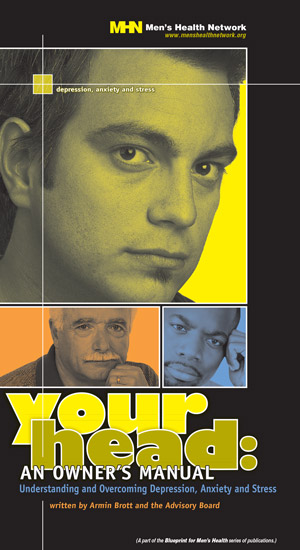Dear HealthyMen: My wife and I have been trying for a year and have been unable to get pregnant. I want to be there to support her, but I’m suffering too and feeling something less than manly. Is there something wrong with me?
Masculinity is a complicated thing. And there’s no more masculine way for a man to express his, well, masculinity than by making babies. That explains why being infertile or having erectile dysfunction (ED) is so strongly connected with depression (in both directions—depression itself can cause ED and ED and/or fertility problems can cause depression). But as if not being able to get a woman pregnant weren’t bad enough, new research has found that infertile men are significantly more likely to suffer from a variety of other health conditions as well.
As odd as it sounds, the health of a man’s sperm may offer some valuable insights into his overall health.
Ten to 15 percent of American couples are “infertile,” a rather loaded term that the Mayo Clinic defines as “not being able to get pregnant despite having frequent, unprotected sex for at least a year.” We tend to think of fertility problems as a women’s issue. But in truth, men are just as likely as women to be the “cause” of the infertility. (In 40% of cases, it’s a female issue; 40% of the time it’s a male issue, and in the remaining 20% of cases, the cause is “unexplained.”)
As everyone knows, we men are generally reluctant (or, as some might say, “self-destructively unwilling”) to see a healthcare provider for regular checkups or to take care of our own body. However, we’re more willing to get checked out if we think it will help a loved one (such as a partner who wants to get pregnant). This creates an odd situation where the first doctor some men see in their adult lives is a fertility specialist who, in most cases, is an OB/GYN (obstetrician/gynecologist)—and the even odder situation where a women’s doctor might save a man’s life by identifying a potentially life-threatening medical condition.
The first (and, arguably, the most fun) test the doctor will order for the man is a semen analysis to identify possible fertility-affecting problems. Specifically, the doctor will look at semen volume (that’s the fluid that carries the sperm), quantity (the number of sperm per milliliter of semen), motility (are your boys moving around well enough to navigate the female reproductive tract?), and morphology (the percentage of your sperm that are shaped normally).
Michael Eisenberg, director of male reproductive medicine and surgery at Stanford University Medical School, and his colleagues reviewed insurance claim data from 115,000 men (average age of 33) and divided them into three groups: those who had been diagnosed with infertility, those whose fertility wasn’t in question, and those who’d had a vasectomy (which the researcher took as an indication of fertility). Their goal was to determine whether the infertile men were more likely to develop health complications than those in the other two groups.
What they found was pretty shocking. Infertile men were 48% more likely than fertile (or vasectomized) men to develop heart disease and 30% more likely to develop diabetes, even after factoring out obesity and smoking. They also had a far higher risk of having kidney disease or abusing alcohol.
As always, it’s important to remember that correlation is not the same as causation. In other words, infertility doesn’t necessarily cause heart disease, diabetes, kidney disease, or anything else. Likewise, none of those conditions is likely to cause infertility.
Eisenberg suspects that something that happened during fetal development—such as exposure to an environmental hazard—might be responsible for fertility and other health issues in adult life.
Bottom line: consider your infertility struggle a reminder to get a checkup. Catching any potential health problems now will help your doctor put together a strategy and interventions to lower your risk. If you don’t want to do it for yourself, do it for your partner and your future baby. They need you to be alive and healthy for a long, long time.
Image by marian anbu juwan from Pixabay




Recent Comments